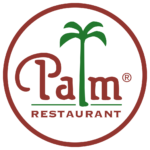- Written by agriadmin
- Published: 28 Sep 2016
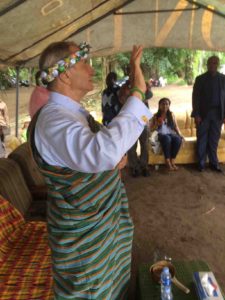
(Ubuntu) Practicing international peace politics: Pictured in the background with his daughter, Governor Ngombila Mbaka, Gentiny of the DRC Province of Mai-Ndombe, traveled to Côte d'Ivoire for H. David's chief ceremony, where Gentiny Ngombila Mbaka was also made an honorary chief. In this photo, H David, the new tribal chief, blesses the crowd. The family of Claude Michel Dutauziet, MD (bio), AgriSmart Vice President of Ivorian Palm Oil Operations, made H. David and Governor Mbaka chiefs of their Côte d'Ivoire tribe.
Follow: Facebook | Twitter | LinkedIn | Web | blog
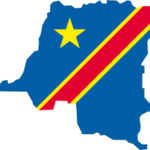
Why invest in the DRC?
The Democratic Republic of the Congo (“DRC”)
A Journey Beyond Cross-Roads
Written September 27, 2016 by Samuel N. Omwenga, Esq.
Facebook | LinkedIn | blog | The Star, Kenya
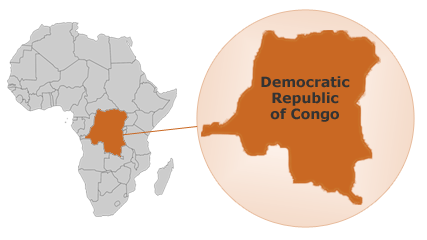 Just as there are two Congos which confuse even the most informed about Africa, including Congolese themselves, there are actually two DRCs which cannot and should not confuse anyone: The DRC of before 2002 and the DRC since.
The DRC of before 2002 going back to when the country was known as Zaire, is one of dilapidated economic conditions, poverty, civil war and death.
Just as there are two Congos which confuse even the most informed about Africa, including Congolese themselves, there are actually two DRCs which cannot and should not confuse anyone: The DRC of before 2002 and the DRC since.
The DRC of before 2002 going back to when the country was known as Zaire, is one of dilapidated economic conditions, poverty, civil war and death.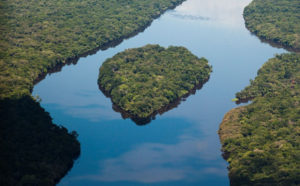 The DRC of after 2002 is one of economic, political and social revitalization bringing about GDP growth of record highs with the forecast being sustained or even better growth rates to the far future.
The year 2002 can therefore be said to be a point in the DRC’s history when the country reached a cross-road: to continue on the same road of dilapidated economic conditions, poverty, civil war and death, or make a sharp turn to a new road of economic, political and social revitalization.
Led by the country’s leader then and now, H.E. President Joseph Kabila, the country chose the latter option and the results have been phenomenal in many respects, especially in the mineral extraction sector.
The DRC of after 2002 is one of economic, political and social revitalization bringing about GDP growth of record highs with the forecast being sustained or even better growth rates to the far future.
The year 2002 can therefore be said to be a point in the DRC’s history when the country reached a cross-road: to continue on the same road of dilapidated economic conditions, poverty, civil war and death, or make a sharp turn to a new road of economic, political and social revitalization.
Led by the country’s leader then and now, H.E. President Joseph Kabila, the country chose the latter option and the results have been phenomenal in many respects, especially in the mineral extraction sector.
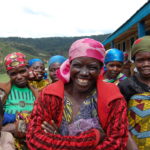 Prior to 2002, extremely unscrupulous characters saw the DRC as nothing but a gold mine where one grabbed whatever they could and make a fortune without regard to the locals and what benefit they would derive from the gold and other mineral extractions from the mineral rich country.
In 2002, however, the Kabila government passed a Mining Code which for the first time regulated the mineral extracting industry giving investors clear rules to operate and make profit consistent with the country’s new moral direction and this led to a robust and sustained wave of foreign direct investment (FDI) in the mining sector, which continues to this day and more of the same is expected in the years to come.
Prior to 2002, extremely unscrupulous characters saw the DRC as nothing but a gold mine where one grabbed whatever they could and make a fortune without regard to the locals and what benefit they would derive from the gold and other mineral extractions from the mineral rich country.
In 2002, however, the Kabila government passed a Mining Code which for the first time regulated the mineral extracting industry giving investors clear rules to operate and make profit consistent with the country’s new moral direction and this led to a robust and sustained wave of foreign direct investment (FDI) in the mining sector, which continues to this day and more of the same is expected in the years to come.
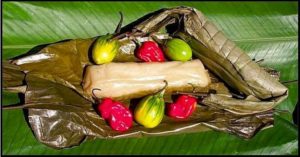 As the Washington Times noted in a special pull out section on Congo published on June 24, 2016, “the wave of investment [in the DRC] has been virtually unabated and raised the annual GDP growth rate from 6% in 2007 to 8% in 2014.
Says the World Bank: “After an economic slump in 2009 that brought growth rate down to 2.8 percent due to global financial crisis, the DRC posted an annual average economic growth rate of 7.7 percent during the 2010-2014 period, and of 7.7 percent in 2015, both of which are well above the average in Sub-Saharan Africa.”
However, a slump in commodity prices damped economic output last year and its effects have not abated this year with only a mild improvement in sight. This has had a knock-on effect on production volumes: copper and cobalt output were down by double digits in the first half of the year. As a result, the government had to adjust its growth forecast and it’s now expected GDP growth for 2016 may drop to about 5%, which is not bad but given where the country is headed more is expected.
As the Washington Times noted in a special pull out section on Congo published on June 24, 2016, “the wave of investment [in the DRC] has been virtually unabated and raised the annual GDP growth rate from 6% in 2007 to 8% in 2014.
Says the World Bank: “After an economic slump in 2009 that brought growth rate down to 2.8 percent due to global financial crisis, the DRC posted an annual average economic growth rate of 7.7 percent during the 2010-2014 period, and of 7.7 percent in 2015, both of which are well above the average in Sub-Saharan Africa.”
However, a slump in commodity prices damped economic output last year and its effects have not abated this year with only a mild improvement in sight. This has had a knock-on effect on production volumes: copper and cobalt output were down by double digits in the first half of the year. As a result, the government had to adjust its growth forecast and it’s now expected GDP growth for 2016 may drop to about 5%, which is not bad but given where the country is headed more is expected.
 Meanwhile, the ruling party and parts of the opposition have agreed to form a caretaker government until the presidential election can take place. Civil unrest threatened to erupt after the announcement that logistical problems postponed the presidential election but the expectation is no one in the government or opposition would not do what it takes to build on the progress made since 2002 and that shall come to pass.
There are many reasons for this not the least of which is what the World Bank says about the DRC: “With 80 million hectares of arable land and over 1,100 minerals and precious metals identified, the DRC has the potential to become one of the richest countries on the African continent and a driver of African growth.”
It’s estimated that only about 10 percent of the DRC’s agricultural land is currently being used, due to a number of reasons, ranging from conflicts in the east, to lack of investment and inadequate infrastructure for commercial farming and transport to markets, problems which can be easily fixed and unleash the country’s potential.
Meanwhile, the ruling party and parts of the opposition have agreed to form a caretaker government until the presidential election can take place. Civil unrest threatened to erupt after the announcement that logistical problems postponed the presidential election but the expectation is no one in the government or opposition would not do what it takes to build on the progress made since 2002 and that shall come to pass.
There are many reasons for this not the least of which is what the World Bank says about the DRC: “With 80 million hectares of arable land and over 1,100 minerals and precious metals identified, the DRC has the potential to become one of the richest countries on the African continent and a driver of African growth.”
It’s estimated that only about 10 percent of the DRC’s agricultural land is currently being used, due to a number of reasons, ranging from conflicts in the east, to lack of investment and inadequate infrastructure for commercial farming and transport to markets, problems which can be easily fixed and unleash the country’s potential.
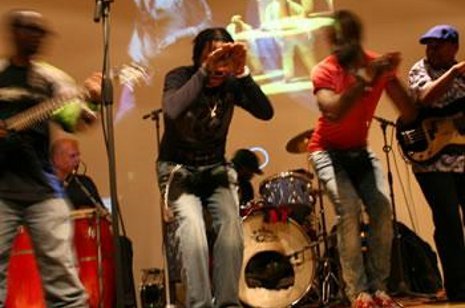 The government knows this, the opposition knows this the only thing left is for the government to promulgate and execute sound economic policies, which are in place, in a political environment conducive to this much desired new order in the country.
Indeed, in recognition of this simple fact, DRC Prime Minister Augustin Matata Ponyo Mapon said recently, “All of this is not possible if national security is not guaranteed. This is the reason why we reinforce security in the country by putting a final end to the wars which frequently destabilize the institutions of the Republic and delay the country’s development.”
The government knows this, the opposition knows this the only thing left is for the government to promulgate and execute sound economic policies, which are in place, in a political environment conducive to this much desired new order in the country.
Indeed, in recognition of this simple fact, DRC Prime Minister Augustin Matata Ponyo Mapon said recently, “All of this is not possible if national security is not guaranteed. This is the reason why we reinforce security in the country by putting a final end to the wars which frequently destabilize the institutions of the Republic and delay the country’s development.”
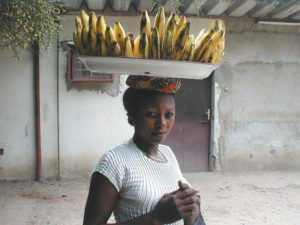 PM Matata Ponyo previously served as the DRC’s Minister for Finance and it’s during his tenure as Minister in that portfolio as well as Prime Minister that the country recorded the impressive growth rate noted above.
The PM is known as a rigorous, disciplined and hardworking politician with a focus on good governance.
Fortunately, for the country, there are many others like him who have seen the devastation wars and corruption has caused the country and the concomitant suffering of her people to the point they have said enough, the country must and cannot reverse in its quest to head in the direction it’s on right now and that is one of peace and prosperity unlike any dreamed before.
One such leader is Ngobila Mbaka, Gentiny of the Province of Mai-Ndombe, DRC, someone AgriSmart has had the privilege to meet right here in the US and he, in turn, invited us to visit him in his country and province, which we just did both recently.
The visit cemented a relationship we wish to build upon to make a difference in Congolese people’s lives in DRC and ultimately in the region and the whole of Africa.
PM Matata Ponyo previously served as the DRC’s Minister for Finance and it’s during his tenure as Minister in that portfolio as well as Prime Minister that the country recorded the impressive growth rate noted above.
The PM is known as a rigorous, disciplined and hardworking politician with a focus on good governance.
Fortunately, for the country, there are many others like him who have seen the devastation wars and corruption has caused the country and the concomitant suffering of her people to the point they have said enough, the country must and cannot reverse in its quest to head in the direction it’s on right now and that is one of peace and prosperity unlike any dreamed before.
One such leader is Ngobila Mbaka, Gentiny of the Province of Mai-Ndombe, DRC, someone AgriSmart has had the privilege to meet right here in the US and he, in turn, invited us to visit him in his country and province, which we just did both recently.
The visit cemented a relationship we wish to build upon to make a difference in Congolese people’s lives in DRC and ultimately in the region and the whole of Africa.
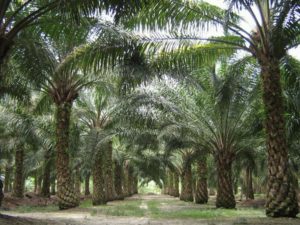 What makes this relationship with the Governor special is not only the strong personal bonds that have already taken hold, but also the fact that the Governor, and the DRC as a whole is now focused on diversifying the country’s economy from mineral extraction based to other sectors of which the country has abundant resources and opportunity.
Leading these other sectors is Agriculture, which the government says is a priority and where “we can have the most significant impact on the population,” as the PM put it in his interview with the Washington Times.
In another interview with Voice of America, the PM said, “Agriculture can also help us resolve the issue of macroeconomic stability because today we spend about USD$1.3 billion to import food stuffs so, if we produce everything we consume today, we are capable of saving $1.3 billion per year.”
Boosting agricultural production is, of course, right in AgriSmart’s alley and more so the reason we’re excited about the synergy and potential success in our DRC endeavor.
“With [its] rich natural endowment and a climate ideal for most agriculture, the DRC has the potential to be an agricultural powerhouse,” says Tim Cushion of the Washington Times, adding, “But the key to achieving the ambition of becoming a major exporter of agricultural products is to transform the bulk of activities in the sector from subsistence to commercial farming.”
What makes this relationship with the Governor special is not only the strong personal bonds that have already taken hold, but also the fact that the Governor, and the DRC as a whole is now focused on diversifying the country’s economy from mineral extraction based to other sectors of which the country has abundant resources and opportunity.
Leading these other sectors is Agriculture, which the government says is a priority and where “we can have the most significant impact on the population,” as the PM put it in his interview with the Washington Times.
In another interview with Voice of America, the PM said, “Agriculture can also help us resolve the issue of macroeconomic stability because today we spend about USD$1.3 billion to import food stuffs so, if we produce everything we consume today, we are capable of saving $1.3 billion per year.”
Boosting agricultural production is, of course, right in AgriSmart’s alley and more so the reason we’re excited about the synergy and potential success in our DRC endeavor.
“With [its] rich natural endowment and a climate ideal for most agriculture, the DRC has the potential to be an agricultural powerhouse,” says Tim Cushion of the Washington Times, adding, “But the key to achieving the ambition of becoming a major exporter of agricultural products is to transform the bulk of activities in the sector from subsistence to commercial farming.”
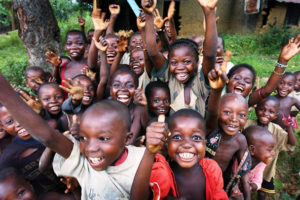 Again, this is right in tandem with what AgriSmart wants to accomplish in West Africa, namely, large scale farming while helping the small farmer improve their production from subsistence to commercial level production in quantities and quality.
USAID estimates that the agriculture sector currently employs 62 percent of DRC’s men and 84 percent of its women, who produce 42.5 percent of the country’s GDP, which is estimated to be USD$63.27 billion for the year 2015.
AgriSmart’s goal is to create 1 million more jobs with better pay, which should not only boost those numbers, but will more importantly significantly improve the quality of life as we also intend to provide housing and clean water for all of these workers.
Alongside that, AgriSmart will also provide mobile health services, which no doubt will not only save lives, but will also contribute in having a healthy populace that can in turn contribute to the economic health of the country.
One of the main challenges facing the agriculture sector—as in many other sectors, however, is creating necessary infrastructure to support investment, primarily the transport network to get agricultural products to markets.
Fortunately, DRC is blessed with the mighty Congo River, the second largest river but the deepest river in the world. The river is not only a major source of food for many people up down its length, it’s also a key piece in DRC’s transport network and has long been used for that purpose, although the Livingstone Falls blocks access to the sea.
Again, this is right in tandem with what AgriSmart wants to accomplish in West Africa, namely, large scale farming while helping the small farmer improve their production from subsistence to commercial level production in quantities and quality.
USAID estimates that the agriculture sector currently employs 62 percent of DRC’s men and 84 percent of its women, who produce 42.5 percent of the country’s GDP, which is estimated to be USD$63.27 billion for the year 2015.
AgriSmart’s goal is to create 1 million more jobs with better pay, which should not only boost those numbers, but will more importantly significantly improve the quality of life as we also intend to provide housing and clean water for all of these workers.
Alongside that, AgriSmart will also provide mobile health services, which no doubt will not only save lives, but will also contribute in having a healthy populace that can in turn contribute to the economic health of the country.
One of the main challenges facing the agriculture sector—as in many other sectors, however, is creating necessary infrastructure to support investment, primarily the transport network to get agricultural products to markets.
Fortunately, DRC is blessed with the mighty Congo River, the second largest river but the deepest river in the world. The river is not only a major source of food for many people up down its length, it’s also a key piece in DRC’s transport network and has long been used for that purpose, although the Livingstone Falls blocks access to the sea.
 AgriSmart is already looking into how best to utilize the river for our transport needs.
As the government knows and the Times noted in its special report, the limited land-transportation infrastructure will require massive investments to enable DRC agriculture to be competitive. There are currently less than 2,000 miles of paved roads and 2,200 miles of railway lines in all of the DRC, a situation which the government is actively seeking ways to address with some success thus far, primarily with the cooperation and collaboration of China, which is one of DRC’s major international trade partner.
During our recent visit to the DRC, we saw first-hand the need for infrastructure rehabilitation and development as we went on a road trip that included travel on more than 200 KM one way of unpaved road to tour an area of interest in the province of Mai-Ndombe.
It was quite an experience for anyone who has not experienced the same but we also saw potential to improve the road by simply having one Bulldozer leveling the road and depositing inexpensive new technologies to keep the road passable with ease without regard to the heavy rains in the region.
In our view, it’s going to take collaboration between the government and the private sector to immediately address these pressing needs, including the rehabilitation and development of infrastructure and we’re quite pleased the government has already indicated its willingness to work with us in solving the problem in at least the areas we intend to operate and we’re confident other investors will do the same for other regions for ultimately a modern and improved country-wide infrastructure.
AgriSmart is already looking into how best to utilize the river for our transport needs.
As the government knows and the Times noted in its special report, the limited land-transportation infrastructure will require massive investments to enable DRC agriculture to be competitive. There are currently less than 2,000 miles of paved roads and 2,200 miles of railway lines in all of the DRC, a situation which the government is actively seeking ways to address with some success thus far, primarily with the cooperation and collaboration of China, which is one of DRC’s major international trade partner.
During our recent visit to the DRC, we saw first-hand the need for infrastructure rehabilitation and development as we went on a road trip that included travel on more than 200 KM one way of unpaved road to tour an area of interest in the province of Mai-Ndombe.
It was quite an experience for anyone who has not experienced the same but we also saw potential to improve the road by simply having one Bulldozer leveling the road and depositing inexpensive new technologies to keep the road passable with ease without regard to the heavy rains in the region.
In our view, it’s going to take collaboration between the government and the private sector to immediately address these pressing needs, including the rehabilitation and development of infrastructure and we’re quite pleased the government has already indicated its willingness to work with us in solving the problem in at least the areas we intend to operate and we’re confident other investors will do the same for other regions for ultimately a modern and improved country-wide infrastructure.
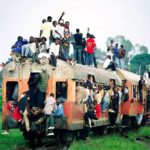 Besides the focus on agriculture, the government under President Kabila and PM Matata Ponyo has been making important strides in improving the business climate resulting in improvement of its “ease of starting business” ranking by the World Bank by 83 places and the country now sits at the center of the global pack at No. 89 up from No. 172 as Fred Qadir noted in the Washington Times special report on DRC.
“A broader series of changes to improve the business climate and promote inbound investment cover rules on the transfer or property, obtaining licenses, execution of contracts, the protection of investors and liberalizing the code for the insurance markets,” added Qadir citing DRC Ministry of Finance documents.
Besides the focus on agriculture, the government under President Kabila and PM Matata Ponyo has been making important strides in improving the business climate resulting in improvement of its “ease of starting business” ranking by the World Bank by 83 places and the country now sits at the center of the global pack at No. 89 up from No. 172 as Fred Qadir noted in the Washington Times special report on DRC.
“A broader series of changes to improve the business climate and promote inbound investment cover rules on the transfer or property, obtaining licenses, execution of contracts, the protection of investors and liberalizing the code for the insurance markets,” added Qadir citing DRC Ministry of Finance documents.
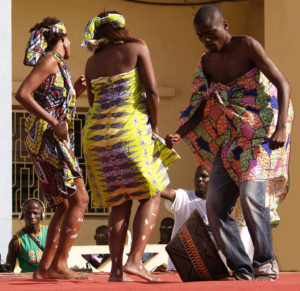 The good news is, regardless of who comes in as the next president of the DRC, one thing all current and would be leaders know and many key among them have already committed to, is the fact that this is the only way to go and put the dark past of the DRC just there—in the past as the country continues to charter its way in the new, refreshing and promising direction of peace and prosperity for the sake of her people.
Having met and looked in the eyes of the DRC leaders we have met, starting with Governor Ngobila himself, knowing what we know about the longing of the Congolese people, and these same leaders coming around to want to meet their desires, we have no doubt about these leaders’ commitment to build a better DRC all that’s left is to execute the vision we all have for this good nation poised for great things to the future.
The good news is, regardless of who comes in as the next president of the DRC, one thing all current and would be leaders know and many key among them have already committed to, is the fact that this is the only way to go and put the dark past of the DRC just there—in the past as the country continues to charter its way in the new, refreshing and promising direction of peace and prosperity for the sake of her people.
Having met and looked in the eyes of the DRC leaders we have met, starting with Governor Ngobila himself, knowing what we know about the longing of the Congolese people, and these same leaders coming around to want to meet their desires, we have no doubt about these leaders’ commitment to build a better DRC all that’s left is to execute the vision we all have for this good nation poised for great things to the future.
Contact
Contact person: Bonita Brisker, Principal, Director bio | Facebook | LinkedIn | Brisk Entertainment Headquarters: AgriSmart, Inc. 725 Rockville Pike, 3rd Floor Rockville, MD 20852 Phone: +1.301.417.4588 Email: emailRelated Links
Governor Gentiny Ngobila Mbaka tag | Facebook | RDC Assemblée Nationale | Google search Mai-Ndombe Province wiki [French] | Google translate version République démocratique du Congo | Democratic Republic of the Congo tag | Présidence de la République Démocratique du Congo | wiki [French]| Google translate version Agrismart Governor Gentiny Ngobila Mbaka invitation of AgriSmart to DRC blog AgriSmart Early Investors Luncheon blog The Palm Restaurant Tyson's Corner, VA H. David Meyers bio | tag | LinkedIn | Facebook | I am technology. #blog Walt Warme, Jr. bio | tag | LinkedIn | Facebook | Twitter Samuel N. Omwenga, Esq. bio | tag | Facebook | LinkedIn | blog | The Star, Kenya Claude Michel Dutauziet, MD bio AgriSmart, Inc. about | team | mission | partners | blog AgriSmart blog investors category AgriSmart blog "Ubuntu, how can one of us be happy if all the other ones are sad?" ↑ Back to top
Add new comment
Posted in About Us, Investors, Partners
Tagged Democratic Republic of the Congo (DRC), Getiny Ngobila Mbaka, H David Meyers, Walt Warme
Posted in About Us, Investors, Partners
Tagged Democratic Republic of the Congo (DRC), Getiny Ngobila Mbaka, H David Meyers, Walt Warme


